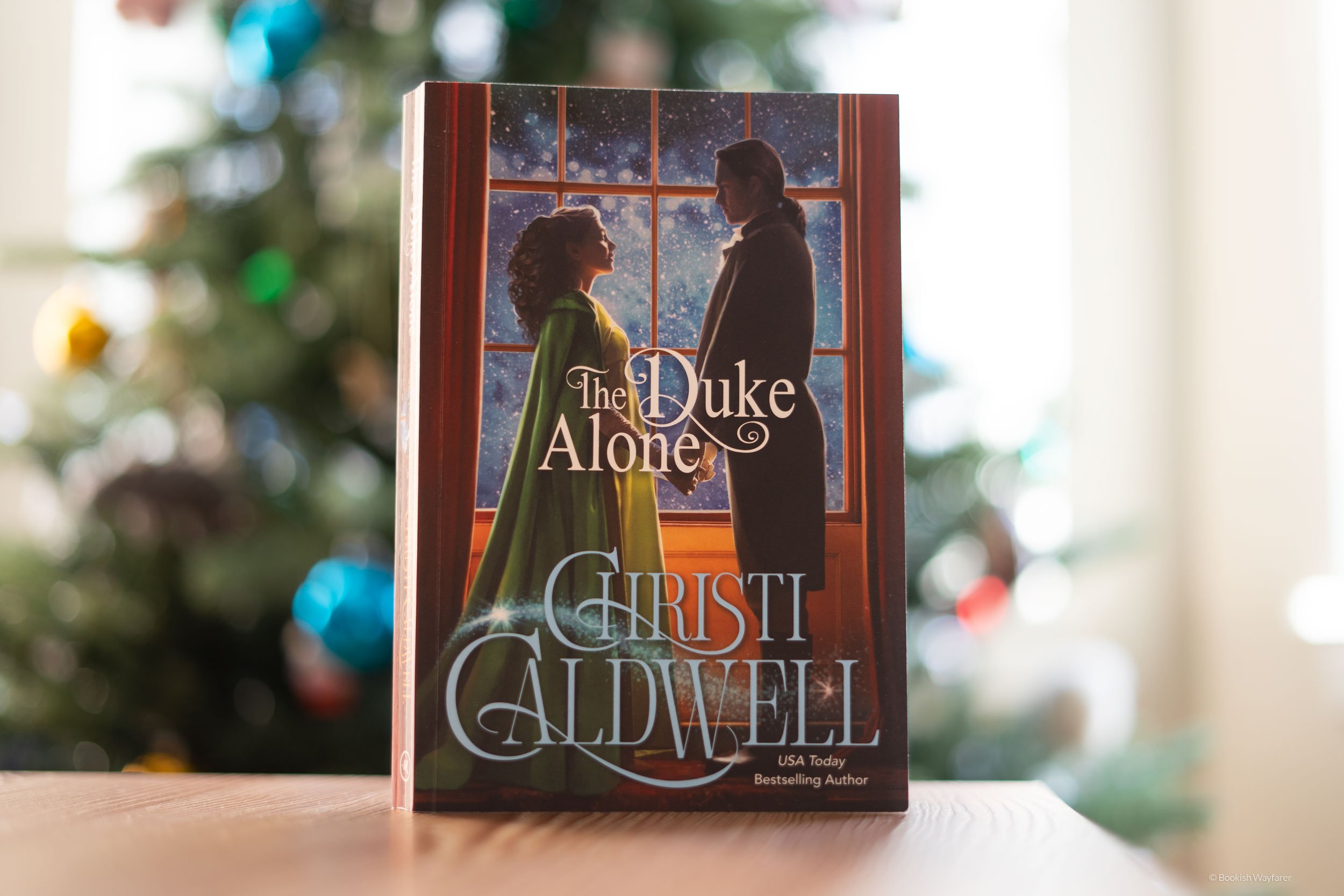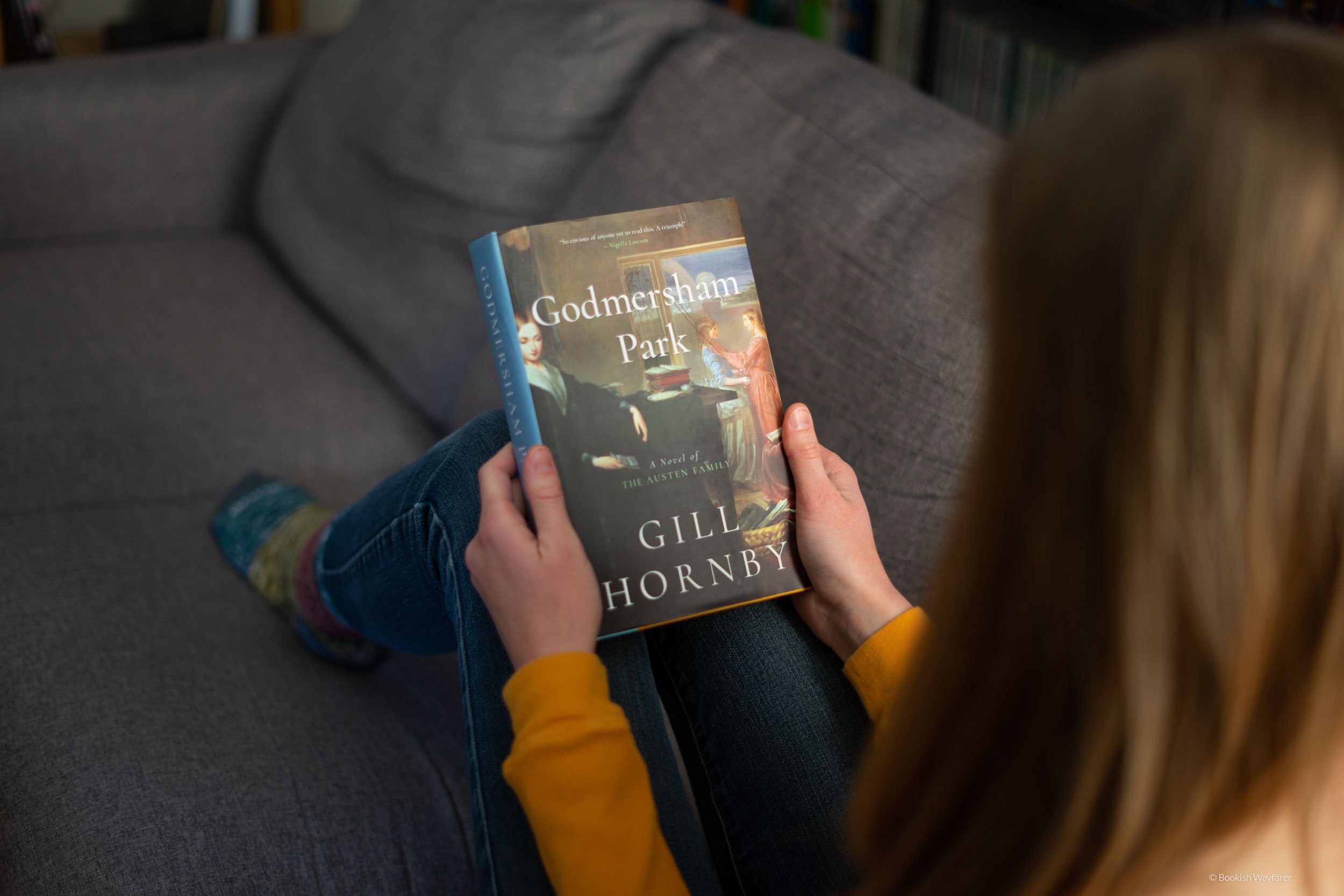Review: Godmersham Park by Gill Hornby
“At half past six, in the bleak, icy evening of 21 January in the year 1804, Anne Sharp arrived on the threshold of Godmersham Park.”
Some links in this post are affiliate links, meaning I will earn a commission (at no extra cost to you) if you click through and make a purchase. For more info, please see my disclaimer.
The Basics
Title: Godmersham Park
Author: Gill Hornby
Published: 2022
Note: I received an ARC from Pegasus Books in exchange for an honest review.
Publisher: Pegasus Books
Pages: 413
Format: Hardcover
Genres: Fiction — Biographical fiction, Historical fiction, Regency fiction
Book Synopsis
After losing her mother and being cast aside by her father, Anne Sharp knows that her life of leisure and luxury is at an end – she must find work. So, when the opportunity to act as governess to Fanny Austen presents itself to her, she has little choice but to accept. In doing so, she sees herself uprooted from London to the Kentish estate of Godmersham Park. There, she learns firsthand about the precarious and often lonely existence of a governess, as well as the freedoms that are lost when one enters service. The arrival of several of the Austens’ extended family members, however, injects some levity and happiness into her life. She forms a particularly close bond with Fanny’s Aunt Jane, and although neither knows it at the time, their connection will develop into a lifelong friendship. Godmersham Park is inspired by the real-life friendship between Anne Sharp and one of Britain’s most celebrated authors: Jane Austen.
My Review & Overall Thoughts
TLDR: Good character development, prose, and historical detail; not-so-good plot or structure.
Warning: Some spoilers ahead!
This is a difficult review to write, for when it comes to Godmersham Park, I am of two minds. One the one hand, it is irrefutably a well-written book in terms of prose, character development, and historical detail. On the other hand, it is not what I would call a stimulating read. Reading it was not particularly enjoyable, nor was it altogether unpleasant. And therein lies the conflict: I neither like nor dislike this book.
The story is more character than plot driven, which while not inherently bad, does cause the book to be quite slow-paced. For the first half of Godmersham Park, the pace borders on sluggish, and reading this portion feels rather tedious. It is not until the arrival of Jane Austen in chapter 27 that reading the book transforms from something akin to a chore to something to be savored, for with Miss Austen comes witty dialogue, humorous encounters, and heartfelt exchanges.
Pacing issues aside, the book suffers from structural problems and an unconvincing romantic subplot. With regard to the former, the story is presented in a nonlinear fashion, with the narrative periodically jumping back in time to recount a moment from Anne’s past. While these flashbacks are usually fine, they do occasionally interrupt the flow of the story, ripping you from the present and thrusting you into another time and place. In addition to these detours down memory lane, the book features time jumps between chapters. From one chapter to the next, you might find that a fair amount of time has passed, which not only has a jarring effect but also leaves you feeling as though you have missed out on the events and goings-on of the characters’ lives.
As for the romantic subplot between Henry and Anne, the story would have been better off without it, for as noted earlier, it is entirely unconvincing. Given Henry’s status as a married man and Anne’s determination to not follow in her mother’s footsteps, you know fairly early on that their relationship is a dead end, incapable of progressing beyond anything more than a flirtation. Plus, as far as love interests go, Henry leaves a lot to be desired. He is egotistical, charming to the point of insincerity, and quick to use others, including Anne, for his own amusement – not exactly a knight in shining armor.
The good
Godmersham Park offers a compelling glimpse into the life of a 19th-century English governess. As shown through Anne, the governess’ position was a difficult and often lonely one – distrusted by fellow servants due to her perceived closeness to the family and kept at arm’s length by the family due to her status as a servant. She was accepted by neither upstairs nor downstairs, and Hornby masterfully conveys this isolated, precarious existence.
Anne, however, is not merely a purveyor of information concerning the Regency governess; she is a fully fleshed-out character with a well-developed arc. We see her transform from a privileged, carefree individual into a woman of substance, who faces her changed circumstances head on with dignity and strength. She is also a highly intelligent and perceptive person, and her commentary on the various absurdities of the household and society at large are both insightful and entertaining.
There is one character though who steals the spotlight from Anne: Jane Austen. She matches Anne in intelligence but surpasses her in wit. Quips effuse from her, and seemingly nothing escapes her notice. She sees through people’s facades and astutely observes all that goes on around her. She also does not shy away from voicing her opinion, including as it relates to topics deemed unseemly by her contemporaries. Moreover, she proves herself to be a kind and loyal friend to Anne, encouraging her artistic pursuits and supporting her whenever possible. Their friendship is one of the highlights of the book.
The more peripheral characters, namely the other Austen family members and servants, are also worthy of praise. They are fleshed-out the ideal amount for secondary characters and contribute to the story in meaningful ways, avoiding the pitfall of so many ancillary characters – superfluity. Elizabeth Austen is a particularly well-penned character, exemplifying the expected behavior of a lady of the house. She is courteous to her servants, Anne included, but ultimately, she is their superior in rank, a fact which underlies her every interaction with them.
Perhaps Godmersham Park’s greatest strength is Hornby’s writing. Her prose is both polished and teeming with detail. It is evident that Hornby conducted a significant amount of research for this book, from period-appropriate language to the dates and locations of various events.
Overall
Godmersham Park is a mixed bag. It has some commendable qualities but also some less-than-stellar ones. I will likely never read it again, but I do not regret having read it (nor would I steer anyone away from picking it up).
Have you read Godmersham Park? If so, what did you think of it? Let me know in the comments section below!
-Julia
P.S. If you enjoyed this post, please consider supporting me on Buy Me a Coffee.





